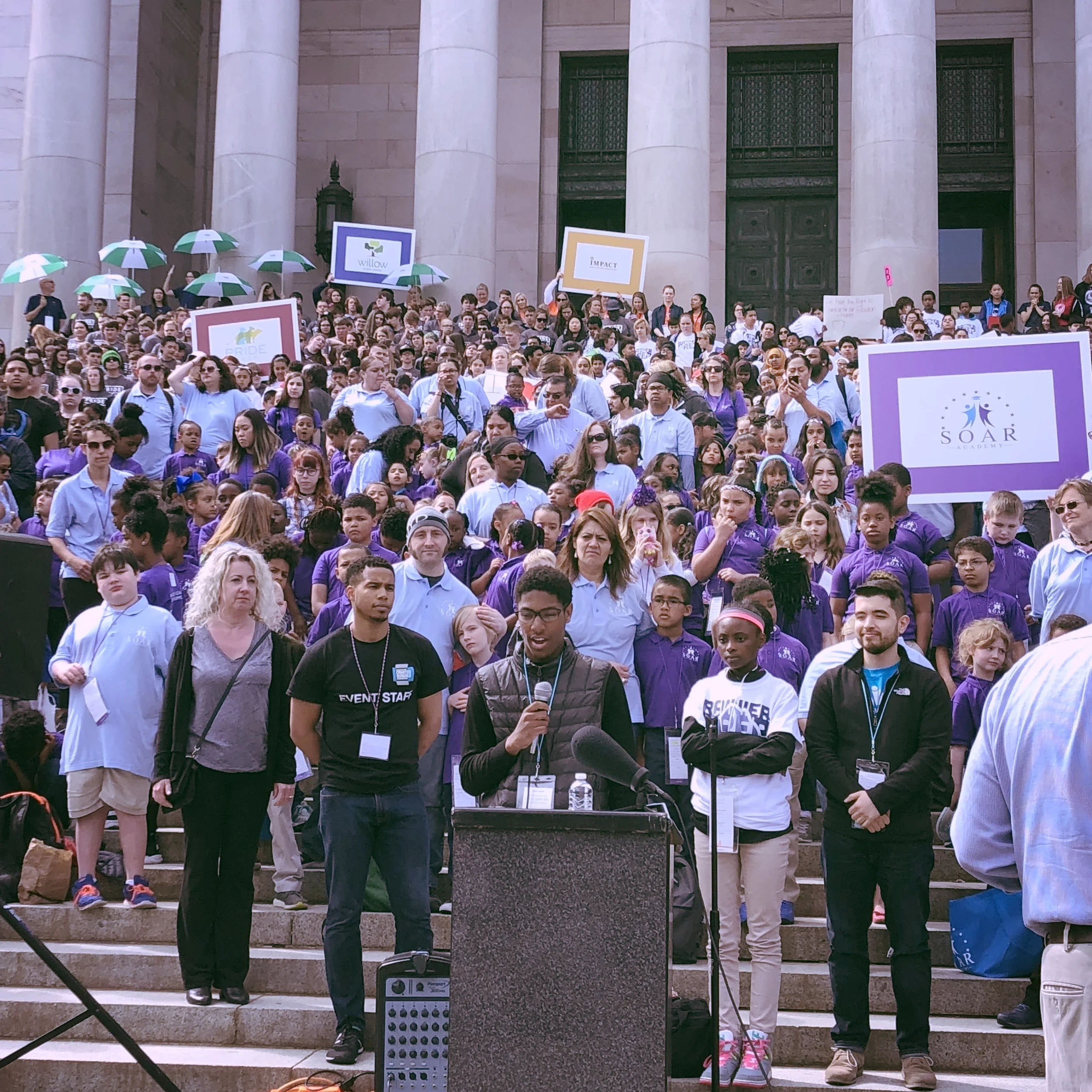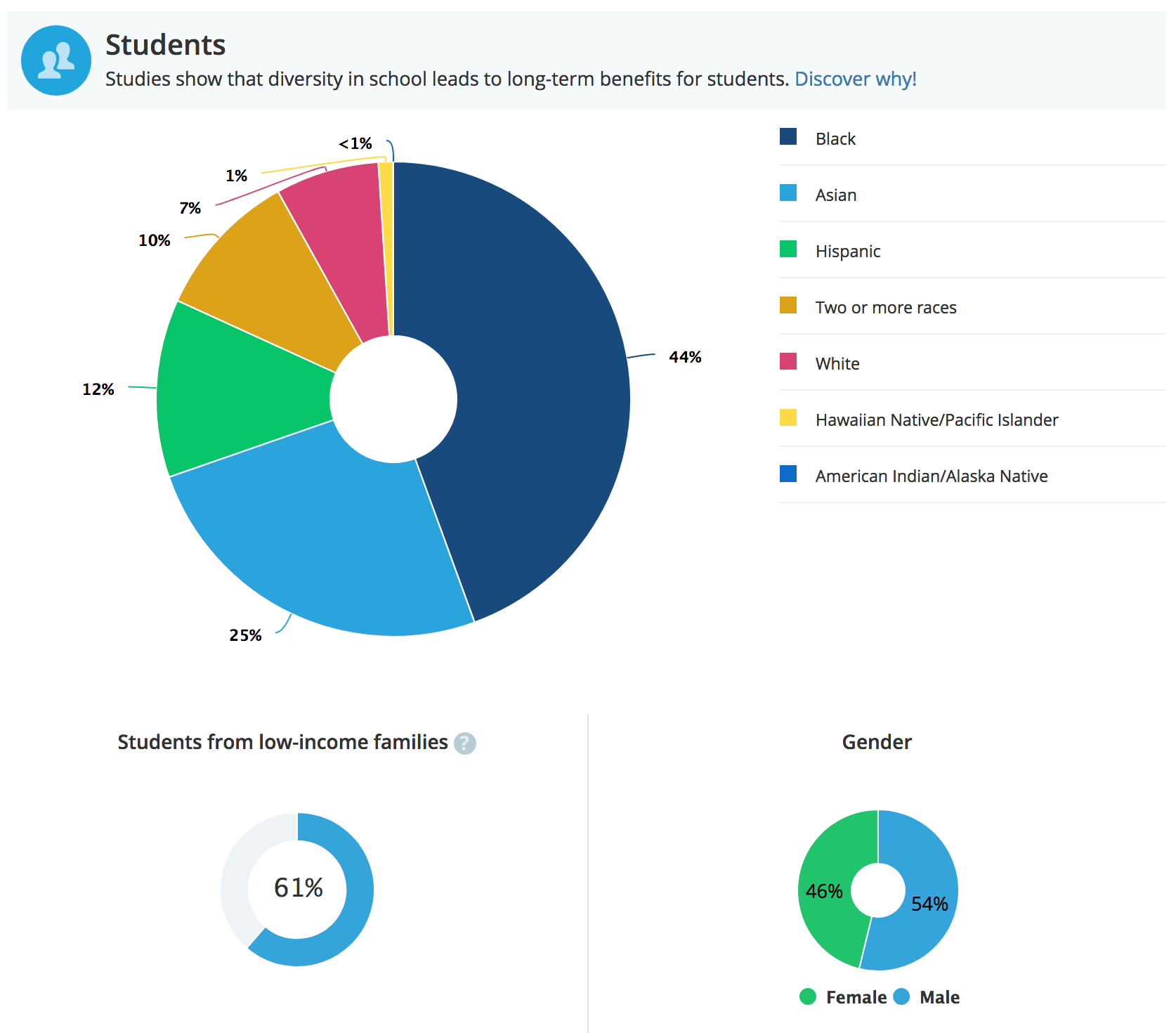What About Parents Like Me?
This is all supposed to provide clarity for parents like me who send their kids to schools like Emerson.
Emerson is our neighborhood elementary school, and my son is a third-grader there. He and the vast majority of his fellow students are students of color, and it’s one of just a couple schools in Seattle whose free/reduced lunch percentages are so high that every kid gets to eat for free.
We are starting this new school year with our third new principal in four years. We’re excited about the new leadership, and we love the diversity of the student body and the staff. But the fact remains that we don’t have the resources or the outcomes at Emerson that more affluent schools enjoy in Seattle.
Ours is a school that has been neglected by the system for decades now. So you’ll excuse me if I have a hard time seeing how this chart will do anything to change that. (Also, for what it’s worth, it looks like they chose the chart’s color palette from the patterned Crock-Pot my parents got as a wedding gift in the late ’70s.)
I’m Losing Faith
It makes me question the whole premise of creating a “state accountability plan” under ESSA. Why are we investing all this time and effort in creating a system that has no backbone, that doesn’t even try to solve our greatest issues?
As a parent of Black children, as a parent feeling concerned about the significant equity issues in our schools, this plan doesn’t connect to reality for me. It assumes the status quo is a reasonable starting point.
Seattle has the fifth-worst achievement gap between Black students and white students in the nation. We’ve been found guilty of disproportionately disciplining Black students across the district. These are not abstract figures. These are real kids, people’s beloved children, being chewed up and spit out by an unfair, racist system. How is this state accountability system going to help me as a parent?
The truth is, it can’t help me. It can’t help my kids. Because that’s not what it was designed to do.
Washington State was given a chance to redesign what we do in our schools by asking and answering some big questions: What will we reward? What do we truly value? What will we do to make sure our systems and our schools and our teachers treat all kids and families fairly and with respect?
But instead of meeting these deep-seated issues with vulnerability and courage, we buried them in the weeds of our ESSA plan, slapping a new name on the same limited scope and timid vision that have been guiding our schools since forever.
It’s not enough.
Sure, the plan acknowledges our opportunity and achievement gaps, but it takes only the smallest of steps toward closing them. It will give Emerson slightly different amounts of money for slightly different reasons. But it fails to address the source of Emerson’s neglect and instead merely changes the bandages on our gaping wound. It can only hope to stop the bleeding, not to actually heal anything.
Where Do We Go From Here?
I need Washington’s ESSA plan, frankly, to read like an anti-bias manifesto, or I don’t care about it. I need it not to simply acknowledge and pay lip service to systemic racism and classism and the gaps they create. I need our state’s plan to acknowledge that nothing else matters until these gaps are closed -- that if our schools are setting some students up for success at the expense of others, then our schools are part of the problem of systemic division and oppression that plagues our country as a whole.
We know firsthand in Washington state what’s possible when you take bold direct action in the name of human rights. Our voices legalized gay marriage and public school choice. We’ve been a standard-bearer for the rest of the nation in standing up to oppressive federal legislation this year.
But when it comes to our kids and our schools, we’re quiet. We’re accepting of milquetoast. We’re willing to let our schools be so much less than they must be.
An inequitable school system fails everyone by perpetuating disparity and discrimination. Our statewide school leaders are failing us in the same way by accepting this incremental, play-it-safe plan. It’s time to start thinking differently about “fixing” education.
We don’t need education reform. We need an education revolution. And maybe that starts by more boldly and more strongly rejecting the systems that keep us from realizing those changes.
Washington’s ESSA plan is the latest and greatest extension of that willingness to make slow, barely noticeable “progress” at the expense of our currently vulnerable students and families. It’s a written testament to our passive approach to school reform.
So, my only honest response to Washington’s ESSA plan is to say, no. Our kids need a revolution and you’re offering a clean band-aid. It’s not enough.















